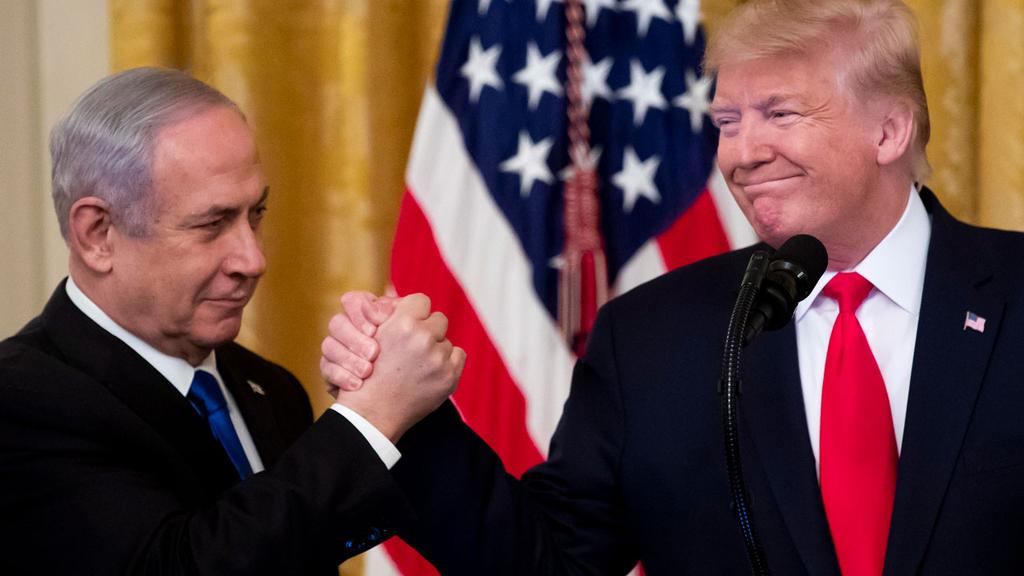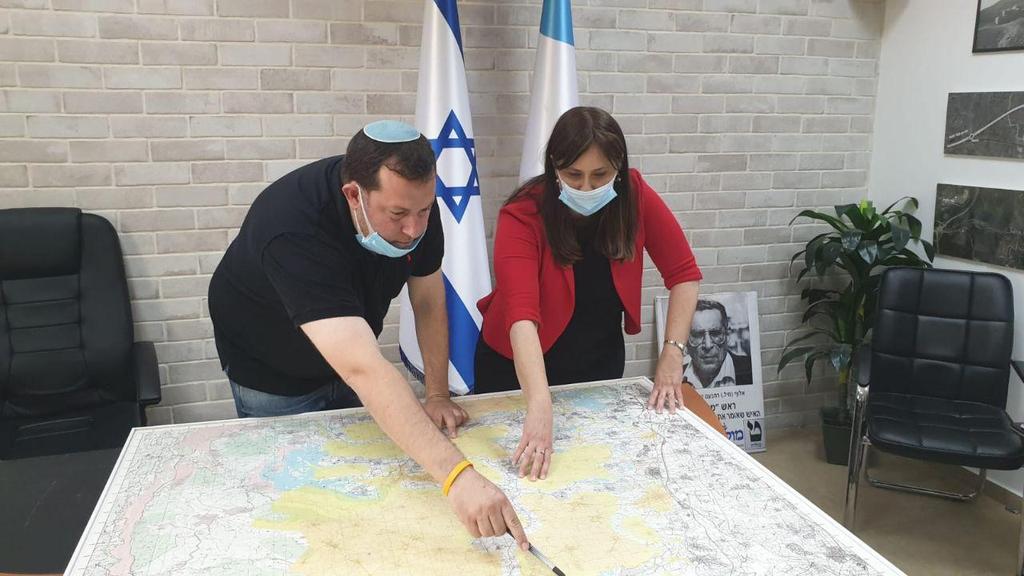Getting your Trinity Audio player ready...
As Israel moves closer to Prime Minister Benjamin Netanyahu's planned July 1 start of the process of West Bank annexation, American officials on Sunday sent a message that the move would would have to be delayed due to the mass protests in the U.S.
"The Americans are over the head with protests and coronavirus, therefore annexation is not their top priority right now," said an Israeli official.
3 View gallery


Prime Minister Benjamin Netanyahu and U.S. President Donald Trump clasps hands as the American Mideast peace plan is unveiled at the White House, January 21, 2020
(Photo: EPA)
The official also said that the U.S. administration is hoping for wider support for such a move - a consensus that is not in place at present.
German Foreign Minister Heiko Maas is expected to arrive in Israel Wednesday for a visit to warn the government against annexation.
Maas is expected to meet with Netanyahu, Defense Minister Benny Gantz and Foreign Minister Gabi Ashkenazi as well as with Palestinian and Jordanian officials.
Diplomatic sources said that Maas, speaking in the name of a number of European foreign ministers, will try to convince Israel not to take any unilateral actions, chiefly annexation.
The European Union has already conducted several hearings on possible sanctions to deter or, if needed, actually be implemented against Israel.
Some of the sanctions, mainly financial ones, do not require a majority among the 27-member body.
Analysts say that the sanctions could lead to bilateral treaties between Israel and various European nations being suspended and could even lead to the EU officially recognizing Palestinian independence.
If Israel does go through with annexing parts of the West Bank, at least eight European nations are mulling official recognition of a Palestinian state.
Israel estimates that those nations include France, Luxembourg, Belgium, Ireland and Spain.
Details of the annexation map that will be submitted to the U.S. have not yet been finalized, Settlements Affairs Minister Tzipi Hotovely told Samaria Regional Council head, Yossi Dagan, on Sunday.
3 View gallery


Settlements Affairs Minister Tzipi Hotovely and Samaria Regional Council head Yossi Dagan
(Photo: Samaria Regional Council)
Dagan in turn said that he is "not willing to give up a centimeter" and that "we [the settlements] don't have to agree to the prime minister's plans."
"We are at a crossroads that could either see excellent historic results on sovereignty or the creation of a terror state in the heart of the country," he said.
"There isn’t a Class A and a Class B of settlements. We aren't differentiating between those [settlements] in the blocs and those that are in isolated areas. [Annexation] would be an immediate security threat to thousands of citizens."


